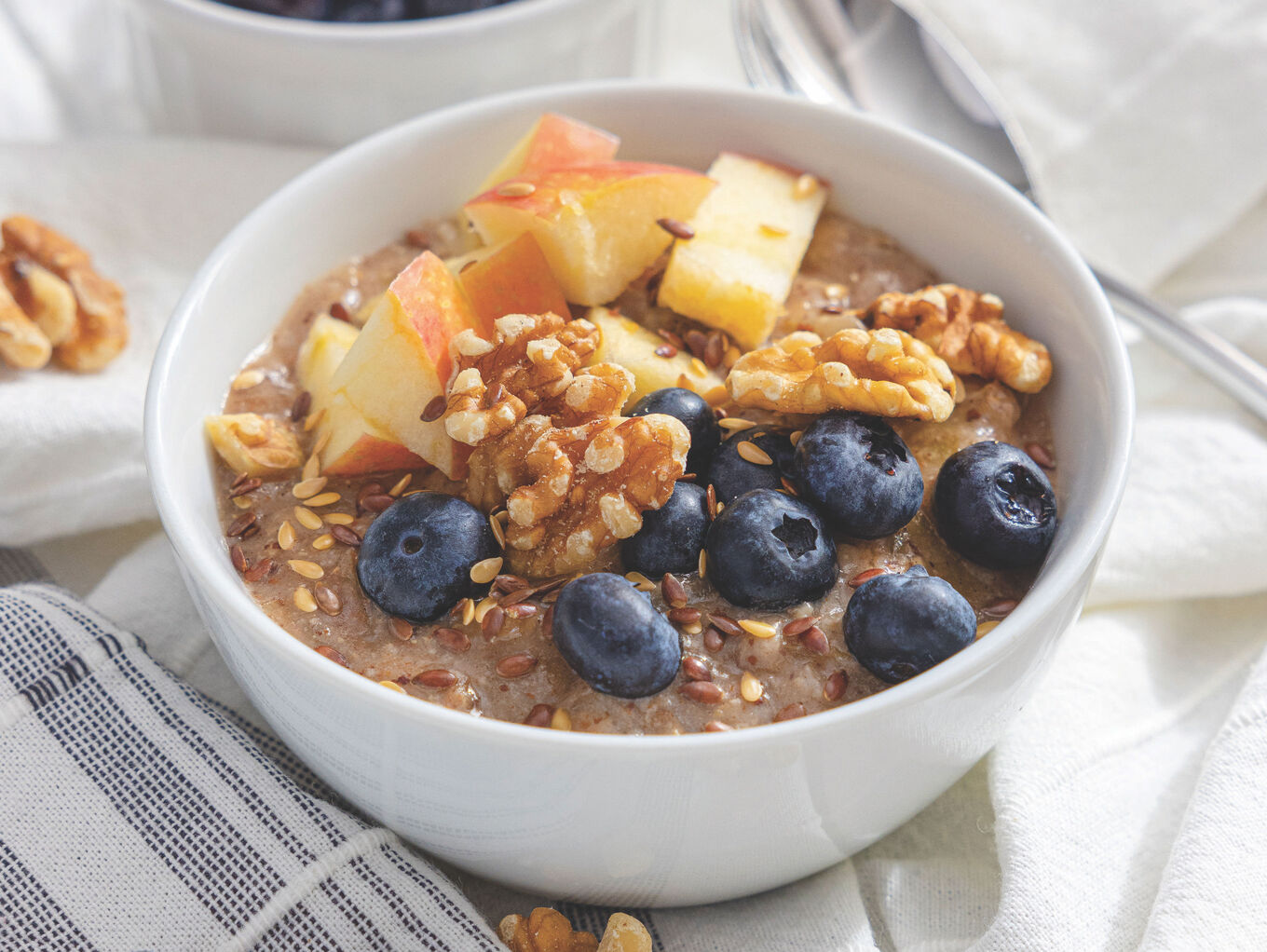Healthy adults who eat a high-fiber diet with at least 8 to 10 grams of soluble fiber per day have fewer antibiotic-resistant bacteria, viruses, and fungi—also known as antimicrobial resistance (AMR)—in their guts, according to a study published by Agricultural Research Service scientists in scientific journal mBio.
Antimicrobial resistance in people is largely based in their gut microbiome, where microbes are known to carry genetically encoded strategies to survive contact with antibiotics. And microbes that have resistance to the commonly used antibiotics, such as tetracycline and aminoglycoside, put people at higher risk of infection.
The researchers noted that diet is a powerful method for shaping the human gut microbiome and may be a tractable method for lessening antibiotic resistance, and yet little is known about the relationship between diet and AMR. For the study, the researchers were looking for specific associations between the levels of antibiotic resistance genes in the microbes of the human gut and both fiber and animal protein in adult diets.
To do this, they examined this relationship in 290 healthy individuals who contained various abundances of antibiotic-resistant genes and found that individuals who consumed diverse diets that were high in fiber and low in animal protein had fewer antibiotic-resistant genes.
“The [study] results lead directly to the idea that modifying the diet has the potential to be a new weapon in the fight against antimicrobial resistance,” Danielle Lemay, study lead and research molecular biologist with the ARS Western Human Nutrition Research Center in Davis, CA said in a statement. “And we’re not talking about eating some exotic diet either, but a diverse diet, adequate in fiber, that some Americans already eat.”

Eat more fiber-rich plants and less animal protein
The researchers found that regularly eating a diet with higher levels of fiber and lower levels of animal protein, especially from beef and pork, was significantly correlated with lower levels of antimicrobial resistance genes (ARG) among participants’ gut microbes. The study participants with the lowest levels of ARG in their gut microbiomes also had a greater abundance of strict anaerobic microbes, which are bacteria that do not thrive when oxygen is present and are a hallmark of a healthy gut with low inflammation.
The researchers noted that the amount of animal protein in the diet was not a top predictor of high levels of ARG. But the strongest evidence was for the association of higher amounts of soluble fiber in the diet with lower levels of ARGs.
Soluble fiber dissolves in water and is the main type of fiber found in plant foods, including grains such as barley and oats; legumes such as beans, lentils, and peas; seeds (like chia seeds) and nuts; and some fruits and vegetables such as carrots, berries, artichokes, broccoli, and winter squash.
“Surprisingly, the most important predictor of low levels of ARG, even more than fiber, was the diversity of the diet,” Lemay said. “This suggests that we may want to eat from diverse sources of foods that tend to be higher in soluble fiber for maximum benefit.” On the other end of the data, those people who had the highest levels of ARG in their gut microbiomes were found to have significantly less diverse gut microbiomes compared to groups with low and medium levels of ARG.
With these findings, the researchers suggest that a separate study that prescribed a particular diet for participants would allow for better comparisons and allow for further findings relating to dietary interventions that may be useful in lessening ARG and discovering how nutrition can reduce the risk of antibiotic-resistant infections. “Our diets provide food for gut microbes,” Lemay said. “This all suggests that what we eat might be a solution to reduce antimicrobial resistance by modifying the gut microbiome.”

Antibiotic resistance linked to animal agriculture
The study’s findings are important because scientists expect AMR to worsen in the coming decades, posing a serious threat to global public health. Antibiotic use in animal agriculture is a factor contributing to the increased resistance. According to a 2019 report published in the journal Science, 73 percent of the world’s available antibiotics are used in the meat industry, and antibiotic resistance in animals exploited for food globally has nearly tripled since 2000.
For the report, researchers from ETH Zurich, the Princeton Environmental Institute, and the Free University of Brussels examined nearly 1,000 publications and unpublished veterinary reports to find that from 2000 until 2018, antibiotics used to treat food animals in developing nations for bacterial infections are becoming largely ineffective, failing more than half the time in 40 percent of chickens and one-third of the time in pigs.
“The portfolio of antimicrobials used to raise animals for food is rapidly getting depleted, with important consequences for animal health, farmers’ livelihoods, and potentially for human health,” the report states.

Benefits of a plant-based diet
The new study on high-fiber foods lowering ARG adds to the growing body of evidence that plant-based diets are better for health, including for your gut. A first-of-its-kind study published last year in peer-reviewed scientific journal Foods suggested that plant-based meats (the study used products from British brand Meatless Farm) have a positive impact on gut health. The randomized and controlled real-world study found that consumers who eat just five plant-based meals per week instead of meat-centric dishes experience an increase in the levels of a group of bacteria that produce butyrate, a fatty acid that promotes good digestive health and lessens inflammation to protect against disease.
“This study is ground-breaking as it’s the first to indicate a direct correlation between plant-based meat offerings and changes in gut bacteria consistent [with] better gut health outcomes,” Miguel Toribio-Mateas, lead researcher from the School of Applied Sciences at London South Bank University, said in a statement. “The key factor driving these changes is the nutritional value of Meatless Farm’s offerings, most importantly the high fiber content and phytonutrients found within and their role on the production of butyrate.”
For more on the benefits of a plant-based diet, read:
Vegans Are Happier Than Meat-Eaters, Study Finds
Switching to a Plant-Based Diet Can Add 10 Years to Your Life, Study Finds
Vegetarian Children Are as Healthy as Kids Who Eat Meat, New Study Finds
JUMP TO ... Latest News | Recipes | Guides | Health | Subscribe









